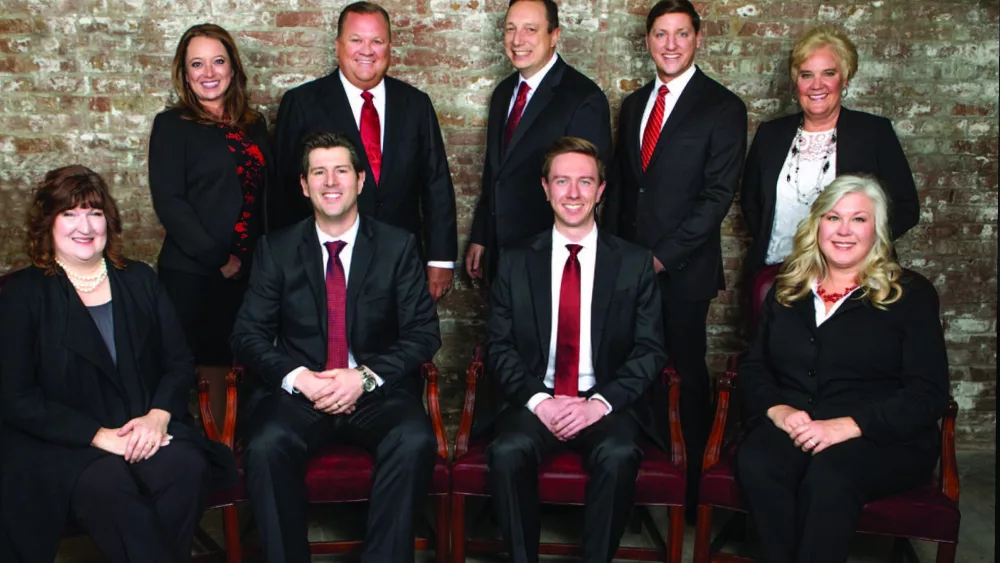There aren’t too many people who seek out total isolation in their lives, or the loneliness that results from being cut off from friends, family, colleagues and others, and yet every single day in a sadly elusive way far too many of us are headed down that path by simply ignoring the fact that we have lost our ability to hear clearly.
Dr. Gyl Kasewurm and her colleagues at Dr. Kasewurm’s Professional Hearing Services in the Edgewater District of St. Joseph are deeply concerned about the increasing evidence that hearing loss is affecting brain health.
Research by Johns Hopkins and other institutions have linked cognitive decline and even dementia to hearing loss for multiple reasons. One study found that older adults with hearing loss experience a 30-40-percent faster decline in cognitive abilities than peers with normal hearing.
But a 25-year-long study published in 2015 found that hearing aid use reduced the risk of cognitive decline associated with hearing loss. And just last year, researchers reported that treating hearing loss in midlife is the single greatest change a person can make to lower their risk of dementia.
Dr. Kasewurm says that untreated hearing loss has long been linked to increased social isolation and loneliness, which studies have shown are well-established risk factors for Alzheimer’s and dementia.
Imagine your brain has a finite amount of fuel. As hearing becomes more difficult, you use more “fuel” to comprehend what you’re listening to — meaning you have less for memory and decision-making. Scientists refer to that as the “cognitive load theory.”
The Professional Hearing Services team of hearing health professionals have the research that shows that hearing loss accelerates brain shrinkage. Seriously. Believe it or not, our brains actually shrink as we age. However, MRI images of people with hearing loss show the brain “shrinks” faster than normal, likely due to lack of stimulation.
Fortunately, two fairly recent studies — one completed in 2015 and another just last year in 2017 — determined that treating hearing loss with hearing aids can reduce the risk of cognitive decline associated with hearing loss and can help prevent dementia.
There’s even more exciting news from Dr. Kasewurm and the team at Starkey Hearing. Their newest hearing aid, Livio AI, was specifically designed to help people achieve good cognitive health. It’s being heralded as the best sounding and best performing hearing aid ever to help treat hearing loss — but it’s also the first wearable device that helps you monitor your brain and body activity.
Dr. Gyl and her Board Certified Hearing Instrument Specialist, Tony Meyer recently let me give the Livio AI a quick spin, and I have to tell you that they immediately produced a more natural sound than anything I’ve seen or heard so far on my own journey of hearing care. It’s the world’s first hearing aid to provide both superior sound quality and the ability to track body and brain health.
To understand what I’m talking about, think “fitness tracker.” Most fitness tracking devices use the wrist, but the ear provide far more accurate data and is, in fact, the ideal spot for reliable tracking, and the new Starkey Livio AI is the first-ever device to take advantage of that. Perhaps even more amazing is the device’s ability to translate foreign languages on the fly. Imagine talking to someone whose language is meaningless to you and getting real-time translation as you converse.
There is far more to Livio AI’s capabilities so if you are interested, call Dr. Kasewurm’s office today at 269-982-3444 to learn the rest of the story.
The benefits of hearing aids go far beyond simply hearing more clearly. Dr. Kasewurm says hearing aids can also:
- Reduce mental fatigue in your life…
- Decrease your feelings of isolation and depression…
- Improve your ability to do several things at once…
- Improve your memory, your attention, and your focus…
- Improve your communication skills
Dr. Gyl’s friends at Starkey Hearing Technologies report that last year, a study published in The Lancet, one of the world’s leading medical journals, called dementia “the greatest global challenge for health and social care in the 21st century.” The study, conducted by The Lancet Commission on Dementia Prevention and Care, noted that 50 million people have dementia worldwide — and that the number is expected to triple by 2050.
The commission’s purpose was to provide recommendations for prevention and management of dementia. The need is urgent, it determined, as dementia not only affects the person with dementia, it also impacts their family and friends.
The commission’s 24 international experts concluded that one in three cases of dementia could be prevented if people managed just nine lifestyle factors — one of which is managing hearing loss during midlife (between age 40-65).
The other eight include increasing childhood education and exercise, maintaining social engagements, reducing or stopping smoking, and management of depression, diabetes, hypertension, and obesity.
Dementia typically doesn’t manifest itself with symptoms until we’re 65+, but the study’s authors note that it likely begins between ages 40-65. They determined that managing these nine modifiable risk factors at various stages of life could “contribute to prevention or delay of dementia.”
The commission admits science isn’t yet unanimous on why unmanaged hearing loss can increase the risk of dementia. But research has confirmed that hearing loss adds to the cognitive load of the brain, leads to social isolation and depression, and accelerates brain atrophy — all of which are likely contributing factors.
Now, at least, there’s research that points to ways we can “reduce the incidence of dementia or substantially delay its onset” — and nearly all are within our control. That’s terrific news for anyone worried about being affected by that awful condition.
Hearing loss is definitely something you can manage with the help of a trained hearing professional like Dr. Gyl Kasewurm and the team at Professional Hearing Services on Renaissance Drive in the Edgewater neighborhood of St. Joseph. If you have — or think you have — hearing loss, this new research gives you a great reason to do something about it as soon as you can, and Dr. Kasewurm is ready to help. Call today for more at 269-982-3444.






